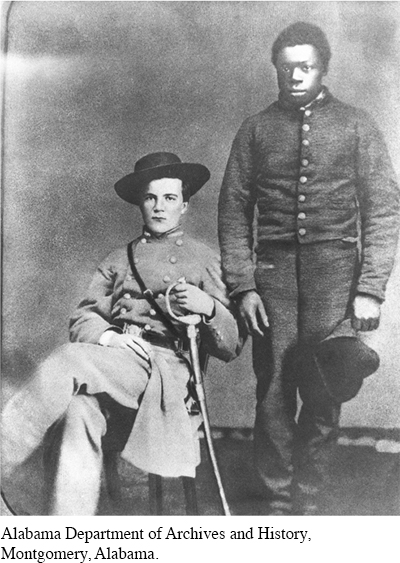>What problems did the Confederacy face at home?
> CHRONOLOGY
1862
|
1863
|
By seceding, Southerners brought on themselves a firestorm of unimaginable fury. Monstrous losses on the battlefield nearly bled the Confederacy to death. Southerners on the home front also suffered, even at the hands of their own government. Efforts by the Davis administration in Richmond to centralize power in order to fight the war convinced some men and women that the Confederacy had betrayed them. They charged Richmond with tyranny when it impressed goods and slaves and drafted men into the army. War also meant severe economic deprivation. Shortages and inflation hurt everyone, some more than others. By 1863, unequal suffering meant that planters and yeomen who had stood together began to drift apart. Most disturbing of all, slaves became open participants in the destruction of slavery and the Confederacy. [[LP Photo: P15.08 John Wallace Comer, C.S.A., with his servant, Burrell – VISUAL ACTIVITY/

Understanding the American Promise 3ePrinted Page 423